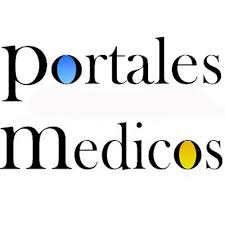Prevalencia de resistencia a la insulina en una cohorte de pacientes ecuatorianos con sobrepeso y obesidad
Prevalence of insulin resistance in a cohort of overweight and obese Ecuadorian patients
Resumen
RESUMEN
La resistencia a la insulina es un proceso subyacente en enfermedades metabólicas. Es un estado de respuesta disminuida de los tejidos blanco a la insulina. Su prevalencia se vincula estrechamente con la obesidad, cuya incidencia crece a escala mundial, lo que resalta la necesidad de profundizar en esta interacción. El objetivo fue evaluar la prevalencia de resistencia a la insulina en pacientes con sobrepeso y obesidad en el Laboratorio Clínico ORION. Se aplicó un diseño observacional, de tipo transversal y prospectivo, con enfoque mixto. Se estudió una muestra representativa de 248 adultos durante el periodo febrero a mayo de 2025. El índice de masa corporal demostró sobrepeso en el 68,2% de las mujeres y 62,0% de los hombres y valores promedios significativamente mayores en obesos grado I y II (p<0,0001). El perímetro abdominal de riesgo muy alto se observó en 99,5% de mujeres y 94,0% de hombres (p=0,0033). El sobrepeso y la obesidad estuvieron presentes en todos los grupos etarios, a excepción de los mayores de 60 años. Aunque la glucemia e insulina basal estuvieron mayormente normales, el 63,6% de mujeres y el 66,0% de hombres presentaron el modelo homeostático que define insulinorresistencia (HOMA-IR) elevado (p<0,001). Se asoció obesidad grado I y II con resistencia a la insulina (p=0,0150), sin relación con el sobrepeso. En conclusión, se evidencia una relación dosis-respuesta entre la severidad de la obesidad y la resistencia a la insulina, sugiriendo la importante necesidad de detectar sistemáticamente la disfunción metabólica y personalizar estrategias preventivas y terapéuticas adecuadas.
ABSTRACT
Insulin resistance is the underlying pathogenic process in numerous metabolic diseases, especially type 2 diabetes mellitus. It is defined as a state in which target tissues exhibit a diminished response to physiological levels of insulin. Its prevalence is closely linked to obesity, whose incidence is rising globally, highlighting the urgent need to further investigate this interaction. The objective was to assess the prevalence of insulin resistance in overweight and obese patients at the ORION Clinical Laboratory. A descriptive, cross-sectional, prospective observational design with a mixed-methods approach was employed. A representative sample of 248 adults was studied between February and May 2025. Body mass index revealed overweight in 68.2% of women and 62.0% of men, with significantly higher mean values in individuals with grade I and grade II obesity (p< 0.0001). A very high-risk waist circumference was observed in 99.5% of women and 94.0% of men (p= 0.0033). Overweight and obesity were present across all age groups, while no grade II obesity was found in those over 60 years. Although fasting glucose and basal insulin levels were largely within reference ranges, 63.6% of women and 66.0% of men exhibited elevated homeostatic model assessment of insulin resistance (HOMA-IR) (p< 0.001). Grade I and grade II obesity were associated with insulin resistance (p= 0.0150), with no relationship found in overweight individuals. In conclusion, these findings demonstrate a dose-response relationship between the severity of obesity and insulin resistance, underscoring the crucial need for systematic detection of metabolic dysfunction and personalized preventive and therapeutic strategies.
Recibido: 01-09-2025
Aceptado: 08-10-2025
Publicado: 17-11-2025
Palabras clave
Texto completo:
PDFReferencias
Aparco, J. P., & Cárdenas Quintana, H. (2022). Correlation and agreement between the body mass index and abdominal perimeter with the waist to height ratio in Peruvian adults aged 18 to 59 years. Revista Peruana de Medicina Experimental y Salud Pública, 39(4), 392–399. https://doi.org/10.17843/rpmesp.2022.394.11932
Arteaga, J. M., Latorre-Santos, C., Ibáñez-Pinilla, M., Ballesteros-Cabrera, M. D. P., Barón, L. Y., Velosa, S. A., Trillos, C. E., Duque, J. J., Holguín, A., & Eslava-Schmalbach, J. H. (2024). Prevalence of Type 2 Diabetes, Overweight, Obesity, and Metabolic Syndrome in Adults in Bogotá, Colombia, 2022–2023: A cross sectional population survey. Annals of Global Health, 90(1), 67. https://doi.org/10.5334/aogh.4539
Asamblea Nacional del Ecuador (ANE). (2021). Ley Orgánica de Protección de Datos Personales. https://www.telecomunicaciones.gob.ec/wp-content/uploads/2021/06/Ley-Organica-de-Datos-Personales.pdf
Battista, F., Ermolao, A., van Baak, M. A., Beaulieu, K., Blundell, J. E., Busetto, L., Carraça, E. V., Encantado, J., Dicker, D., Farpour-Lambert, N., Pramono, A., Bellicha, A., & Oppert, J. M. (2021). Effect of exercise on cardiometabolic health of adults with overweight or obesity: Focus on blood pressure, insulin resistance, and intrahepatic fat-A systematic review and meta-analysis. Obesity reviews: an official journal of the International Association for the Study of Obesity, 22 Suppl 4, e13269. https://doi.org/10.1111/obr.13269
Bonilla‑Carvajal, K., Ángel‑Martín, A., & Moreno‑Castellanos, N. (2022). Hipertrofia y resistencia a la insulina en un modelo in vitro de obesidad y DM2 inducida por alta glucosa e insulina. Salud UIS, e22012. https://doi.org/10.18273/saluduis.54.e:22012
Ciarambino, T., Crispino, P., Guarisco, G., & Giordano, M. (2023). Gender differences in insulin resistance: New knowledge and perspectives. Current Issues in Molecular Biology, 45(10), 7845–7861. https://doi.org/10.3390/cimb45100496
Cheng, L., Zhou, J., Zhao, Y., Wang, N., Jin, M., Mao, W., Zhu, G., Wang, D., Liang, J., Shen, B. & Zheng, Y. (2024). The associations of insulin resistance, obesity, and lifestyle with the risk of developing hyperuricaemia in adolescents. BMC Endocrine Disorders, 24, 220. https://doi.org/10.1186/s12902-024-01757-4
Chianelli, M., Armellini, M., Carpentieri, M., Coccaro, C., Cuttica, C. M., Fusco, A., Marucci, S., Nelva, A., Nizzoli, M., Ponziani, M. C., Sciaraffia, M., Tassone, F., & Busetto, L. (2025). Obesity in prediabetic patients: Management of metabolic complications and strategies for prevention of overt diabetes. Endocrine, Metabolic & Immune Disorders Drug Targets, 25(1), 8–36. https://doi.org/10.2174/0118715303282327240507184902
Das, R. R., Mangaraj, M., Nayak, S., Satapathy, A. K., Mahapatro, S., & Goyal, J. P. (2021). Prevalence of insulin resistance in urban Indian school children who are overweight/obese: A cross sectional study. Frontiers in Medicine, 8, 613594. https://doi.org/10.3389/fmed.2021.613594
da Silva Rosa, S. C., Nayak, N., Caymo, A. M., & Gordon, J. W. (2020). Mechanisms of muscle insulin resistance and the cross talk with liver and adipose tissue. Physiological Reports, 8(19), e14607. https://doi.org/10.14814/phy2.14607
De Lorenzo, A., Itani, L., El Ghoch, M., Gualtieri, P., Frank, G., Raffaelli, G., Pellegrini, M., & Di Renzo, L. (2024). Difference in Body Composition Patterns between Age Groups in Italian Individuals with Overweight and Obesity: When BMI Becomes a Misleading Tool in Nutritional Settings. Nutrients, 16(15), 2415. https://doi.org/10.3390/nu16152415
Ehrmann, D. A., Temple, K. A., Rue, A., Barengolts, E., Mokhlesi, B., Van Cauter, E., & RISE Consortium. (2019). Obesity and insulin sensitivity effects on cardiovascular risk factors: Comparisons of obese dysglycemic youth and adults. Pediatric Diabetes, 20(7), 849–860. https://doi.org/10.1111/pedi.12883
Encuesta Nacional de Salud y Nutrición Continua (ENSANUT Continua). (2024). Resumen ejecutivo. https://www.salud.gob.ec/wp-content/uploads/2024/10/RESUMEN-EJECUTIVO-ENCUESTA-STEPS-final.pdf
Fernández Matías, R. (2023). El Cálculo del Tamaño Muestral en Ciencias de la Salud: Recomendaciones y Guía Práctica. MOVE, 5(1), 481–503. https://publicaciones.lasallecampus.es/index.php/MOVE/article/view/915
Forero Torres, A. Y., & Forero, L. C. (2023). Comparison between anthropometric measurements and indices to evaluate general and abdominal obesity, Colombia ENSIN 2015. Biomédica, 43(Suppl. 3), 88–98. https://doi.org/10.7705/biomedica.7011
González Asqui, A. F., Pombosa Manobanda, L. D., Fernández Soto, G. F., & López López, L. A. (2024). Efecto de las intervenciones dietéticas y de actividad física en los niveles de adiponectina en niños obesos. MQRInvestigar, 8(3), 3922–3941.
Gualan, M., Ster, I. C., Veloz, T., Granadillo, E., Llangari-Arizo, L. M., Rodriguez, A., Critchley, J. A., Whincup, P., Martin, M., Romero-Sandoval, N., & Cooper, P. J. (2024). Cardiometabolic diseases and associated risk factors in transitional rural communities in tropical coastal Ecuador. PLoS ONE, 19(7), e0307403. https://doi.org/10.1371/journal.pone.0307403
Guerra, C., Pincay, C., Plaza, W., & González, H. (2024). Resistencia a la insulina asociada a diabetes mellitus tipo 2 en adultos con sobrepeso. Polo del Conocimiento, 9(4), 459–477. https://doi.org/10.23857/pc.v9i4.6944
Guevara Tirado, A. (2024). Correlación y concordancia entre índice de masa corporal y perímetro abdominal para la detección de sobrepeso u obesidad en la población peruana: 2022. Revista del Nacional (Itauguá), 16(3), 030–042. https://www.revistadelnacional.com.py/index.php/inicio/article/view/195
Hill, M. A., Yang, Y., Zhang, L., Sun, Z., Jia, G., Parrish, A. R., & Sowers, J. R. (2021). Insulin resistance, cardiovascular stiffening and cardiovascular disease. Metabolism, 119, 154766. https://doi.org/10.1016/j.metabol.2021.154766
Instituto Nacional de Estadística y Censos (INEC). (2022). Resultados Censo de Población. https://www.ecuadorencifras.gob.ec/censo-de-poblacion-y-vivienda/
International Diabetes Federation (IDF). (2022). The IDF consensus worldwide definition of the metabolic syndrome (3rd ed.). IDF. https://idf.org/media/uploads/2023/05/attachments-30.pdf
Kosmas, C. E., Bousvarou, M. D., Kostara, C. E., Papakonstantinou, E. J., Salamou, E., & Guzman, E. (2023). Insulin resistance and cardiovascular disease. The Journal of international medical research, 51(3), 3000605231164548. https://doi.org/10.1177/03000605231164548
Leal Montiel, J. Y., & Ortega Fernández, P. (2022). Resistencia a la insulina e hiperinsulinemia en escolares con exceso de peso. Enfermería Investiga, 7(3), 3–11. https://doi.org/10.31243/ei.uta.v7i3.1677.2022
Lee, J., Kim, M. H., Jang, J. Y., & Oh, C. M. (2023). Assessment HOMA as a predictor for new onset diabetes mellitus and diabetic complications in non-diabetic adults: A KoGES prospective cohort study. Clinical Diabetes and Endocrinology, 9(1), 7. https://doi.org/10.1186/s40842-023-00156-3
Lee, S. H., Park, S. Y., & Choi, C. S. (2022). Insulin resistance: From mechanisms to therapeutic strategies. Diabetes & Metabolism Journal, 46(1), 15–37. https://doi.org/10.4093/dmj.2021.0280
Ling, C. (2020). Epigenetic regulation of insulin action and secretion — Role in the pathogenesis of type 2 diabetes. Journal of Internal Medicine, 288(2), 158–167. https://doi.org/10.1111/joim.13049
Marchán, C., Cedeño, J., Castro, D., & Brito-Núñez, N. J. (2021). Prevalencia de resistencia a la insulina según HOMA2-IR. Ciudad Bolívar, Venezuela. Revista Mexicana de Endocrinología, Metabolismo y Nutrición, 8(3), 113–119. https://doi.org/10.24875/RME.20000086.
Marchesan, L. B., Ramos, R. B., & Spritzer, P. M. (2021). Metabolic features of women with polycystic ovary syndrome in Latin America: A systematic review. Frontiers in Endocrinology, 12, 759835. https://doi.org/10.3389/fendo.2021.759835
Mina Ortiz, J. B., Pincay Arévalo, C. L., Valencia Toala, D. S., & Rodríguez Pérez, A. S. (2024). Resistencia a la insulina asociada a Diabetes Mellitus Tipo 2 en adultos con sobrepeso. Revista Investigación y Educación en Salud, 3(1), 15–27. https://doi.org/10.47230/unesum-salud.v3.n1.2024.15-27
Ministerio de Salud Pública del Ecuador (MSP). (2022). Reglamento sustitutivo del reglamento para la aprobación y seguimiento de Comités de Ética de Investigación en Seres Humanos (CEISH) y Comités de Ética Asistenciales para la Salud (CEAS). Acuerdo Ministerial No. 00005 2022. https://ceish.itsup.edu.ec/acuerdo.php
Narváez Ramos, M. D. C., Silvestre Ramos, R., & Ortega Castillo, H. F. (2024). Resistencia a la Insulina en adultos con sobrepeso y obesidad. Revista Eugenio Espejo, 18(2), 18–33. https://doi.org/10.37135/ee.04.20.03
Noboa Pullaguari, K. D. (2023). Asociación entre la circunferencia abdominal y el riesgo de enfermedades cardiovasculares. LATAM Revista Latinoamericana de Ciencias Sociales y Humanidades, 4(2), 4699–4706. https://doi.org/10.56712/latam.v4i2.930
Organización Mundial de la Salud (OMS). (2025). Obesidad y sobrepeso. Datos y cifras. https://www.who.int/es/news-room/fact-sheets/detail/obesity-and-overweight
Pesantes Honores, L. A., Salguero Jaramillo, J. E., & Paladines Figueroa, F. B. (2025). Modelo Homeostático para evaluar la resistencia de insulina y prevención del síndrome metabólico en adultos. Ciencia Latina, 9(1), 1266–1280. https://doi.org/10.37811/cl_rcm.v9i1.15885
Rodríguez‑Rada, C., Celada‑Rodríguez, Á., Celada‑Roldán, C., Tárraga‑Marcos, M. L., Romero‑de Ávila, M., & Tárraga‑López, P. J. (2021). Análisis de la relación entre diabetes mellitus tipo 2 y la obesidad con los factores de riesgo cardiovascular. Journal of Negative and No Positive Results, 6(2), 411–433. https://doi.org/10.19230/jonnpr.3817
Sakers, A., De Siqueira, M. K., Seale, P., & Villanueva, C. J. (2022). Adipose tissue plasticity in health and disease. Cell, 185(3), 419–446. https://doi.org/10.1016/j.cell.2021.12.016
Salas‑González, M. D., Loria‑Kohen, V., Jiménez‑Ortega, A. I., & López‑Sobaler, A. M. (2023). Factores nutricionales relacionados con la resistencia a la insulina en escolares y adolescentes. Nutrición Hospitalaria, 40(Suppl. 2), 51–54. https://doi.org/10.20960/nh.04956
Santos Lozano, E. (2022). Resistencia a insulina: Revisión de literatura. Revista Médica Hondureña, 90(1), 63–70. https://doi.org/10.5377/rmh.v90i1.13824
Shi, J., Chen, J., Zhang, Z., & Qian, G. (2024). Multi‑dimensional comparison of abdominal obesity indices and insulin resistance indicators for assessing NAFLD. BMC Public Health, 24(1), 2161. https://doi.org/10.1186/s12889-024-19657-6
Valensi, P. (2024). Evidence of a bidirectional relationship between heart failure and diabetes: A strategy for the detection of glucose abnormalities and diabetes prevention in patients with heart failure. Cardiovascular Diabetology, 23(1), 354. https://doi.org/10.1186/s12933-024-02436-3
Wang, Y., Chen, J., Song, Y. H., Zhao, R., Xia, L., Chen, Y., Cui, Y. P., Rao, Z. Y., Zhou, Y., Zhuang, W., & Wu, X. T. (2019). Effects of the resistant starch on glucose, insulin, insulin resistance, and lipid parameters in overweight or obese adults: a systematic review and meta-analysis. Nutrition & diabetes, 9(1), 19. https://doi.org/10.1038/s41387-019-0086-9
World Medical Association (WMA). (2013). World Medical Association Declaration of Helsinki: Ethical principles for medical research involving human subjects. JAMA, 310(20), 2191–2194. https://doi.org/10.1001/jama.2013.281053
Enlaces refback
- No hay ningún enlace refback.
Depósito Legal Electrónico: ME2016000090
ISSN Electrónico: 2610-797X
DOI: https://doi.org/10.53766/GICOS
| Se encuentra actualmente registrada y aceptada en las siguientes base de datos, directorios e índices: | |||
 | |||
 |  |  |  |
 |  | ||
 |  |  |  |
 |  |  |  |
 |  |  |  |
 |  |  |  |
![]()
Todos los documentos publicados en esta revista se distribuyen bajo una
Licencia Creative Commons Atribución -No Comercial- Compartir Igual 4.0 Internacional.
Por lo que el envío, procesamiento y publicación de artículos en la revista es totalmente gratuito.

